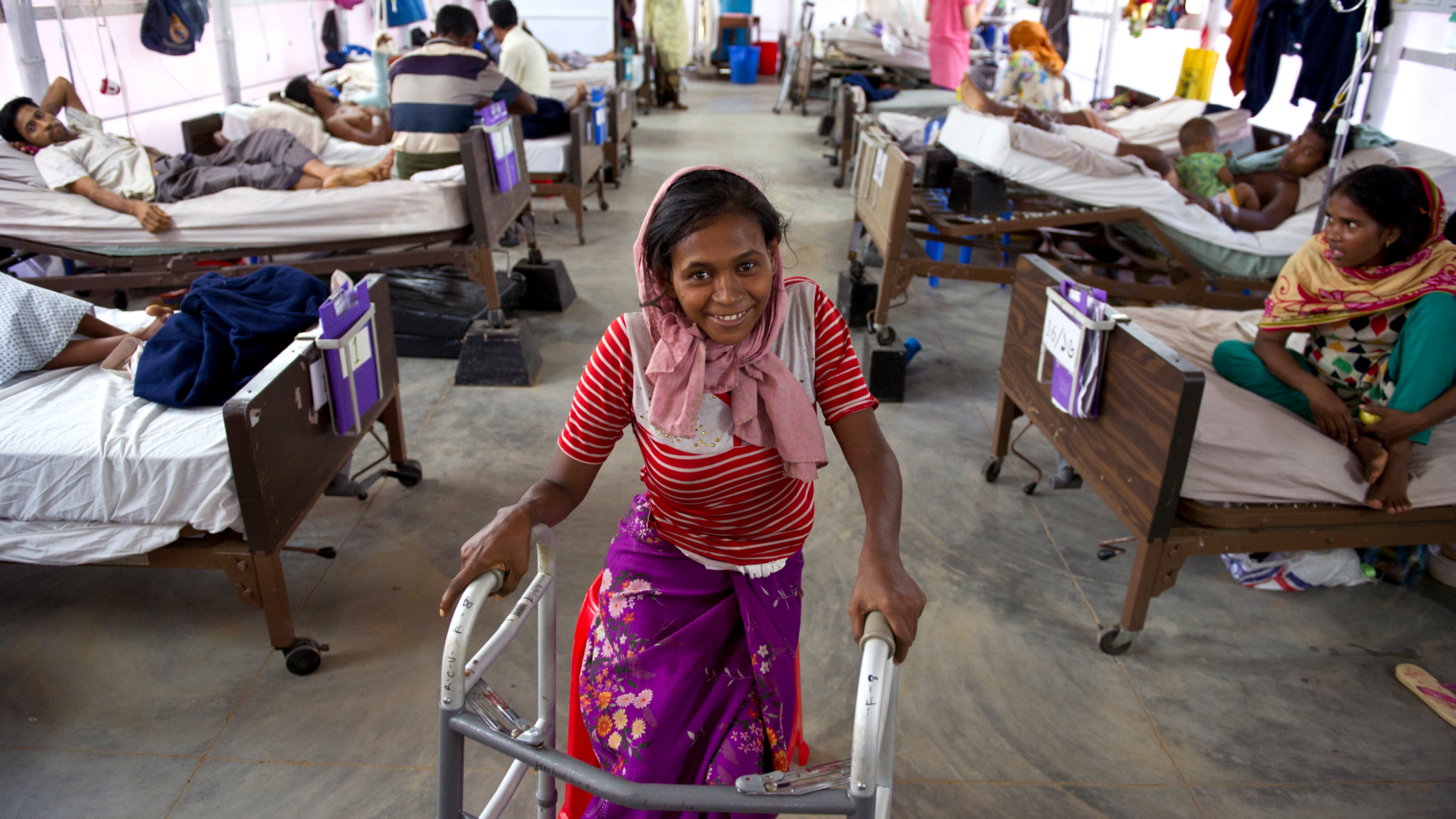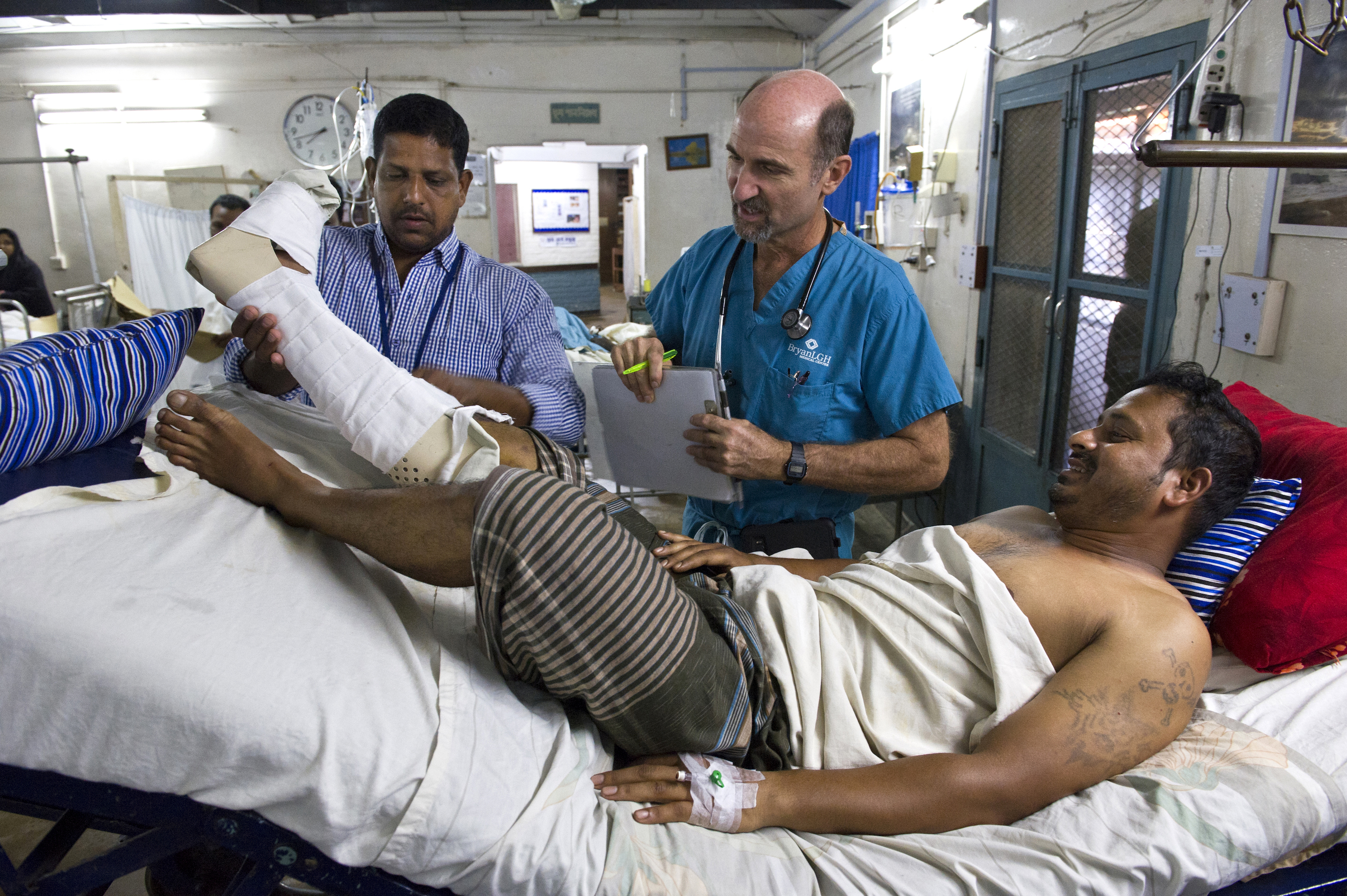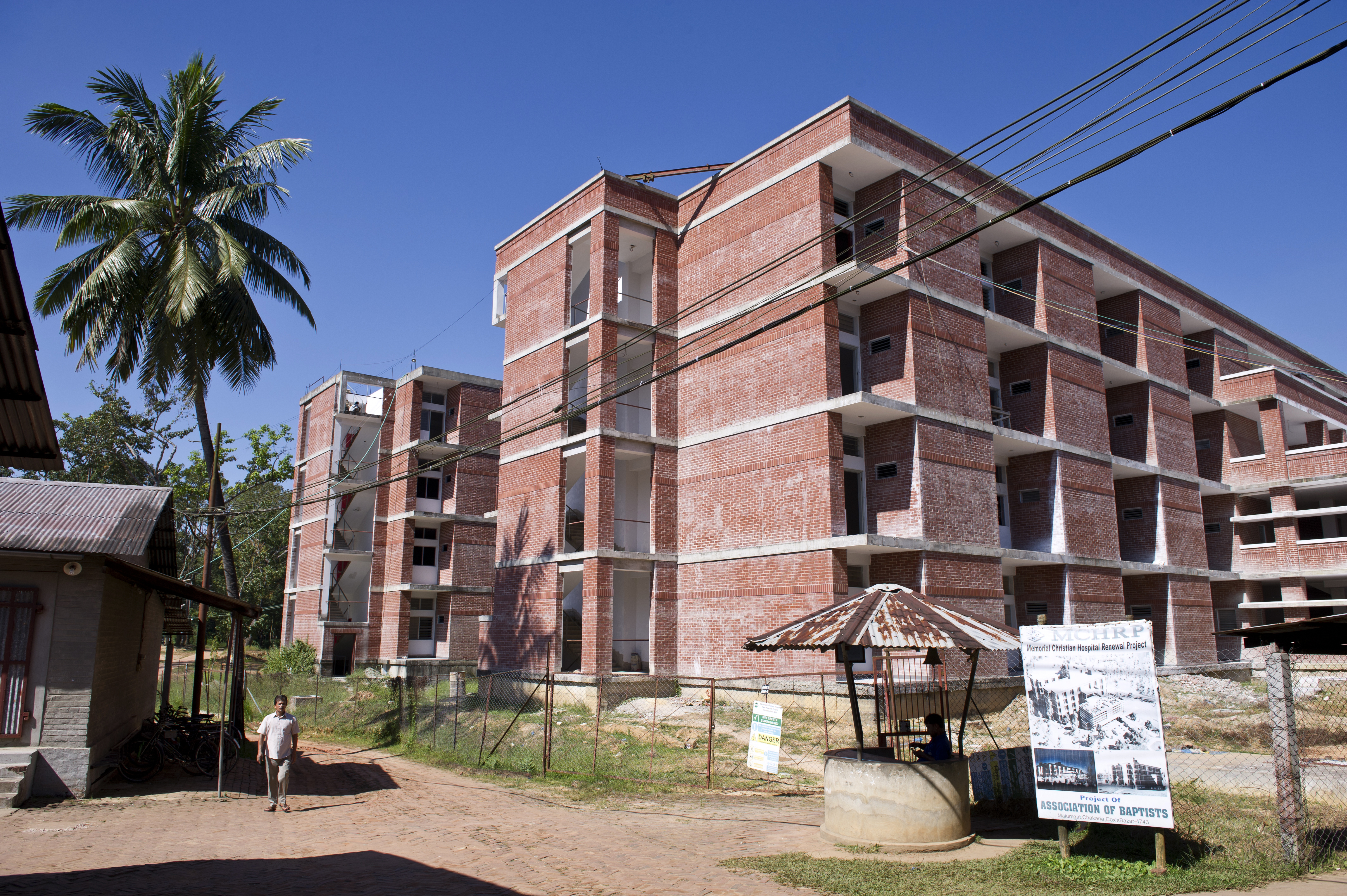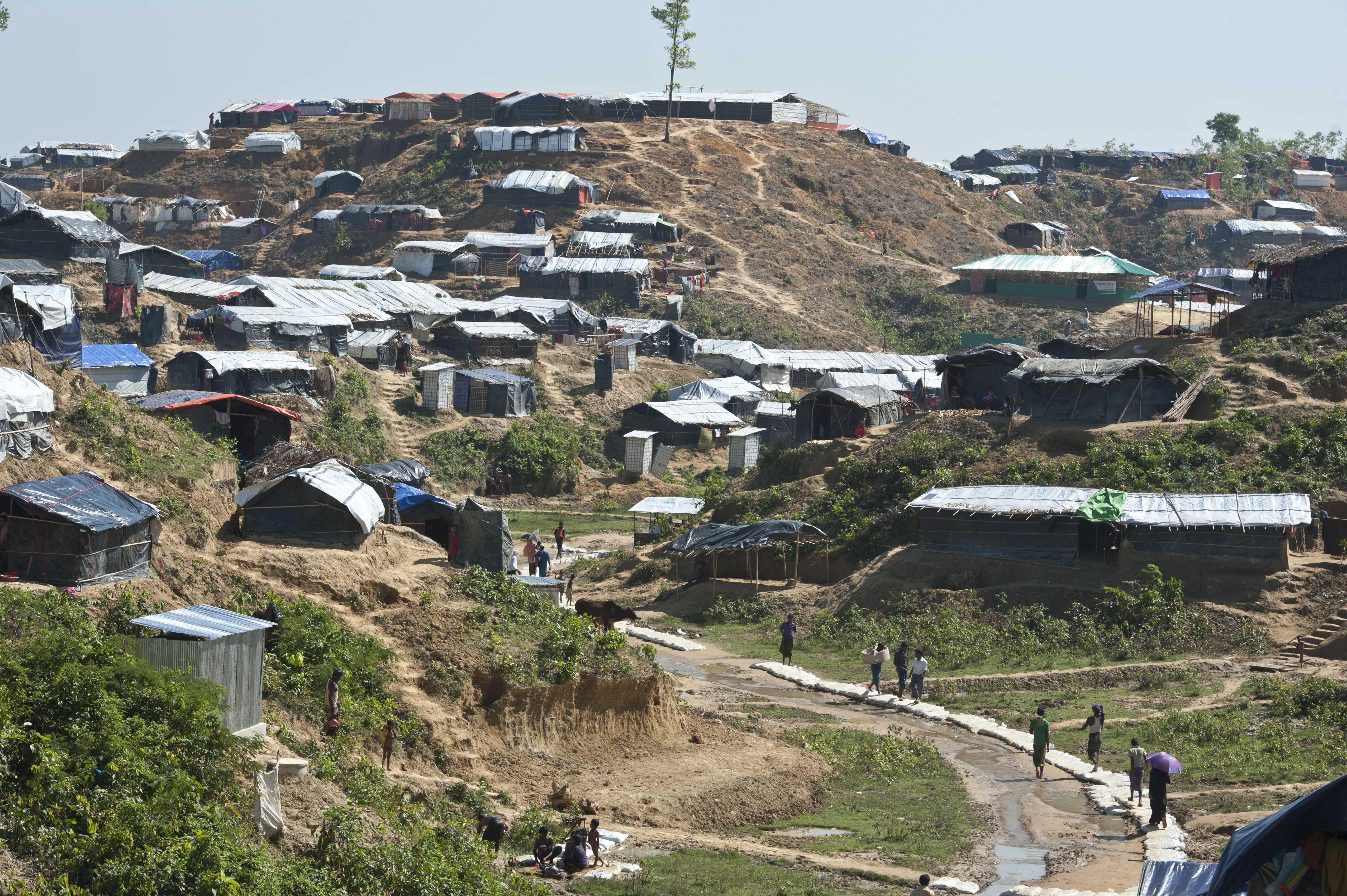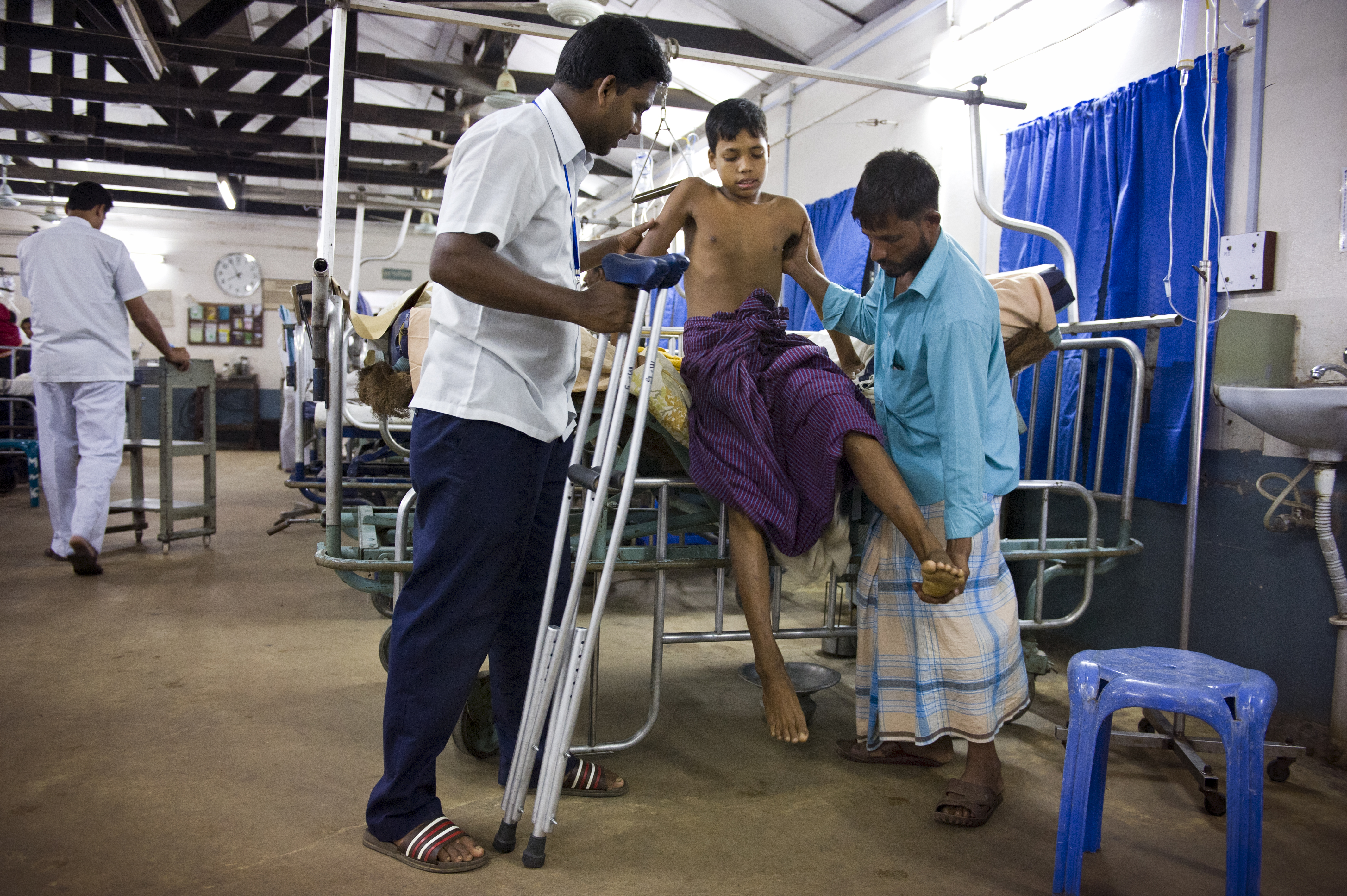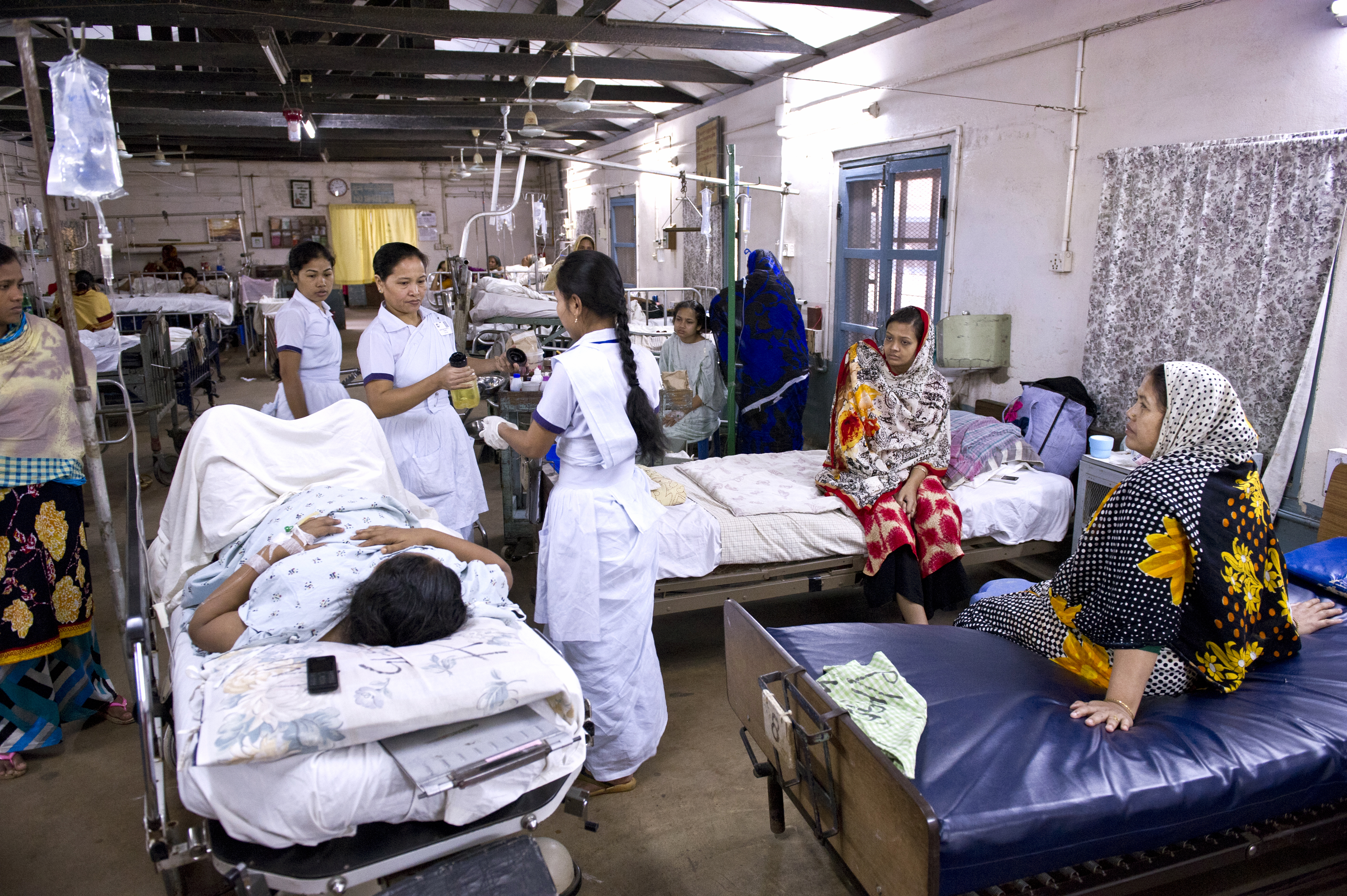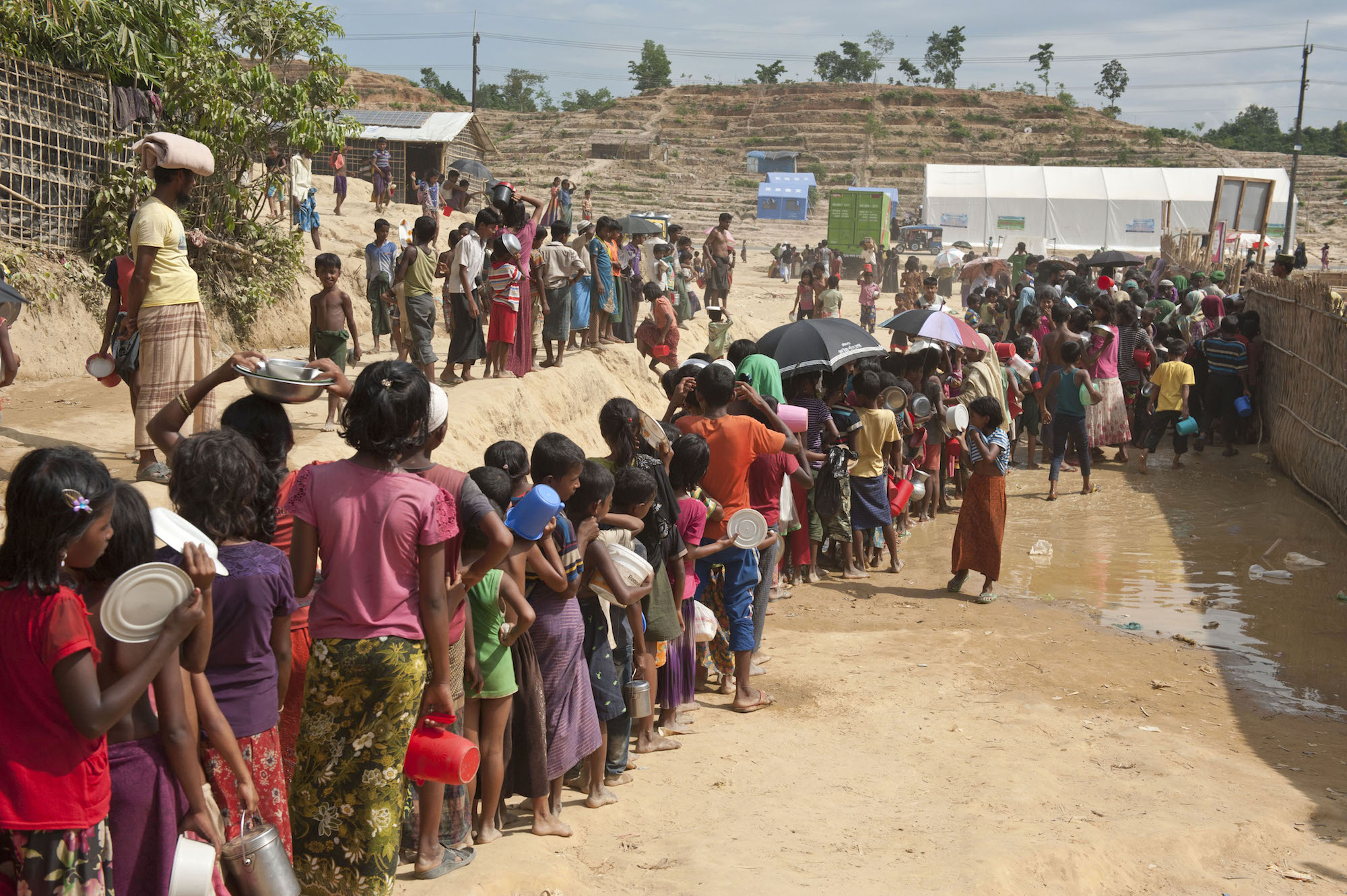It wasn’t that Memorial Christian Hospital in southeastern Bangladesh had no warning.
Steve Kelley, a surgeon at the Baptist facility, got a call from Doctors Without Borders on a Friday afternoon last August.
“He was stammering,” Kelley said of the German physician on the line. The facility for the medical aid group also known as Médecins Sans Frontières (MSF) was about 30 miles south of Memorial Christian, in a Rohingya refugee camp near the border of Myanmar.
“He described hundreds of dead and dying pouring across the border,” Kelley said. “It was a humanitarian nightmare. MSF was up to their eyeballs very quickly.”
The situation—which United Nations High Commissioner for Human Rights Zeid Ra’ad al-Hussein called “a textbook example of ethnic cleansing”—began the day Kelly got the phone call. On Friday, August 25, 2017, Rohingya militants allegedly attacked 30 police stations in western Myanmar and killed 12 security force members.
The Rohingya, a Muslim minority living under almost constant persecution in Buddhist-majority Myanmar, lost their right to citizenship under national law in 1982—and with it, their access to health care, education, and police protection. Few have jobs, and many are banned from leaving their villages.
Their attack against Myanmar police involved handmade weapons. The Myanmar government was furious. In retaliation, soldiers spent weeks killing 6,700 Rohingya (including 730 children under five). They raped women and girls. They burned 288 villages. And along the nearby border with Bangladesh, where the refugees were fleeing, they laid landmines. (By some accounts, this “clearance operation” began before August 25.)
In just over two weeks, 300,000 refugees had fled across those land mines to Bangladesh. A week later, the number was up to 400,000. Three and a half weeks later, 500,000. At last count, 655,000 refugees have fled into Bangladesh.
The refugees joined about 300,000 Rohingya already living there in makeshift camps, and quickly overwhelmed the existing medical care. Many had been shot, slashed, blown up, and raped.
“They started busing them up here,” Kelley said. “We were up to our knickers.”
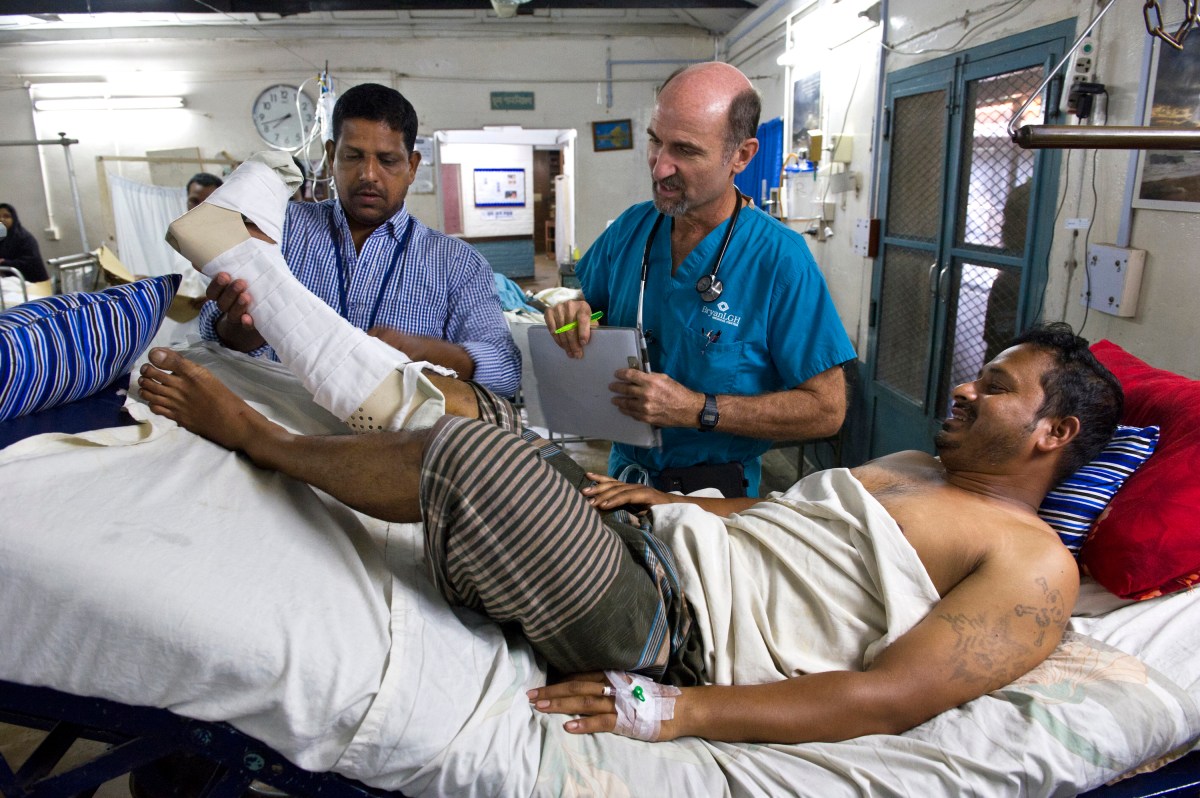
The three doctors and seven nurses at Memorial Christian had just two hours between the MSF phone call and the first ambulance. Patients came in with missing limbs, gunshot wounds, infected cuts, and broken bones.
Two days in, there was no sign that the tide of wounded victims was going to slow. Even working around the clock, Memorial Christian staff had to turn away the majority of the MSF referrals.
“On Sunday, we had to have a team meeting to say, ‘This problem is massive and it’s not going away. How in the world are we going to deal with this?’” Kelley said.
Surprise blessing
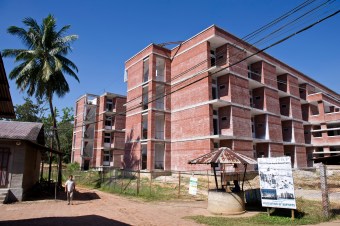
Being able to deal with the problem at all was an unexpected blessing for the Memorial Christian team.
The hospital was established 52 years ago, a response to a team of Baptist missionaries that had lost three members in 10 years to illness. The third was a teenage girl who died from complications related to appendicitis.
Their sending organization—the Association of Baptists for World Evangelism (ABWE)—was aghast.
That shouldn’t be happening, the team decided. Given there was need among both the missionary and indigenous population, they decided to start a hospital.
ABWE “carved out of the jungle” a 46-acre hospital compound, which includes housing for about 30 expatriates and 350 national workers, said H. G., ABWE director of South Asia. (Since he travels often in closed countries, he asked to be identified by initials.)
In addition to hospital personnel, the campus houses staff who translate literature, support communities of faith, help operate about 70 area schools, and assist with agriculture and community health programs.
The 65-bed hospital serves millions: 2 million everyday patients who live within 15 miles of Memorial Christian and 10 million who live within a 60-mile radius and depend on the hospital for its intensive care and specialty surgeries.
“We’ve seen about 50,000 patients a year,” H. G. said. The hospital’s three surgeons perform about 2,000 surgeries and deliver 1,700 babies—more than 500 of those by cesarean—annually.
The spot the team had chosen—and therefore where the hospital was built—was in Malumghat, just 21 miles from the Myanmar border. It’s almost exactly the center point between where missionaries and translators Adoniram Judson and William Carey worked in the early 1800s.
“The work of those two men made ripples, like in a pond,” Kelley said. When the original ABWE missionaries asked which part of then-East Pakistan was in the most need, other agencies pointed them to southeast Bangladesh—the gap between the sets of ripples.
The location also ended up being 30 miles north of the Rohingya camps, which have been around since at least the 1990s when about 250,000 fled severe oppression in Myanmar, only to be forcibly repatriated in the early 2000s. By 2017, 300,000 had found their way back to Bangladesh.
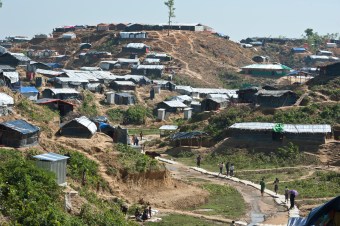
“I started hearing about these people before even coming here,” Kelley said. They’re one of the two dozen or so unreached people groups in the area the hospital serves. “My family and I got here in 1996, and pretty quickly got around to asking, ‘So can we go down to the refugee camps and visit those people?’”
No way, they were told. The government is not in favor of Rohingya people or Christian evangelists; contact between them was forbidden.
“As an organization, we were shut out from them for the last four decades,” Kelley said.
But Memorial Christian is the only place equipped and licensed to perform surgeries in the area. With thousands of wounded Rohingya overwhelming the temporary tent hospitals, there was no choice but to send patients to “the highly respected but in many ways—due to its Christian name—very reviled” hospital.
It’s amazing how God has used “wars and rumors of wars,” said Kelley, referencing Matthew 24:6. “He brought the nations—trembling and bloodied and pathetic—to our doorstep.”
Finding a solution
Two days before August 25, an MSF physician and his administrator drove up to Memorial Christian for a tour and a friendly visit. It’s not a normal practice—most doctors serving with MSF stay only one to three months and don’t have time to scout other medical facilities. But this one was curious, and his visit led to an exchange of contact information.
Without that, Kelley said, Memorial Christian would not have gotten the cell phone call warning of the onslaught of injured patients. Nor, perhaps, would the MSF physician have thought of them when he was inundated with the wounded.
“It’s one of those God things only he could have come up with,” Kelley said.
At the team meeting on Sunday, the first impulse of the overwhelmed staff was to move some of the Rohingya patients to the new hospital that has been in the works on Memorial Christian’s site since the late 1990s. Just the walls were up so far, and funding wasn’t complete, but there was space for 120 beds.
The project manager showed them “how ridiculous that notion was,” Kelley said. “The hospital was 250 feet away on a bumpy brick path, and there was no elevator.” Accessing anything above the first floor with a critically wounded patient would be impossible.
So the team set up Army cots in every available space of their existing building. That gave them another 15 beds, but they needed at least 40 more.

“Over the next week or two, the plan became to put up a tent ward” off the back of the hospital, Kelley said. “But where are we going to get the money for this—especially for the nursing staff?”
Weeks earlier, Kelley had written a letter to his friend Jim Moore in the biomedical department at Samaritan’s Purse, asking for two cardiac monitors. Samaritan’s Purse had sent them with a medical student and his wife, who were set to arrive August 27.
“Two days into the crisis, the couple arrived—just as our number of Rohingya was surging,” Kelley said. “As soon as the monitors came in the front gate, they were connected to two Rohingya patients. I took a picture and sent it to Jim, thanking him.”
The staff at Samaritan’s Purse were moved by the photo, and asked how they could help. Kelley asked for more: a tent ward, nurses, and basic supplies.
“They jumped in with both feet,” Kelley said. After four weeks of 16- to 18-hour days, “literally walking sideways between camp cots because we were running out of space,” Memorial Christian staff welcomed their first Samaritan’s Purse crew.
Samaritan’s Purse had sent along the funds to build a 24-bed tent ward; a second tent was constructed two months later. Memorial Christian filled both with Rohingya patients and staffed these new wards with temporary medical personnel from Samaritan’s Purse.
Four months later, Franklin Graham flew out. The Samaritan’s Purse president and CEO saw the current hospital and the new one, which still needed more than $1 million to complete construction. (The entire project cost $7.6 million.)
“This is a lighthouse, right here in the middle of this part of the world that is dark—a part of the world that’s seen a lot of tragedy,” Graham stated. “God’s got this hospital in the middle of all this, proclaiming his name.”
Graham pledged to give Memorial Christian $2 million, which will finish the hospital and fund future medical work.
“This partnership will help provide some relief in this massive health crisis, as well as triple the amount of people the hospital can serve every day,” ABWE director of strategic communications Leah Pickard stated. (ABWE still partners with Memorial Christian.)
As Memorial Christian has expanded, so has the work of those they came to support. Between 200 and 300 communities of faith have been planted, a number of colleges have been started, and AWANA groups blanket the country. “We’ve seen great multiplication,” H. G. told Alex Kocman and Scott Dunford on the ABWE-powered The Missions Podcast.
They’ve also made progress with Bible translations, which the hospital relies on for patient resources.
Translators started with the Hindu Bengali version, since it was the language of most Christians in the area. Then they tackled the more common Muslim Bengali in 1999. Most recently, attention has shifted to completing an oral version of the Bible in Muslim Malmusch, close to the Rohingya language. (It might be like a Guatemalan listening to a Cuban, or an American listening to a Brit.) About half of the New Testament is finished, along with Genesis and Exodus.
“By God’s providence, here it is—right when a huge crisis breaks,” H. G. said on the podcast. The translation is offered for patients to listen to through headphones. And Memorial Christian is in the process of putting up a media server in the Rohingya ward, so when patients or their families log onto the free Wi-Fi, they can access the resources. Other media—like the Jesus film—are also being fast-tracked.
“Unless we see communities of faith built in that area, unless we see that translated into that culture … a hospital could come and go, but a community of faith lasts and provides that hope for relationship with God that changes people’s lives forever,” H. G. said on the podcast.
Slowing down
Seven months after the crisis began, the urgency of the wounded hasn’t disappeared.
“We’ve seen another small surge of people coming up from the camps with fresh injuries,” Kelley said. The Myanmar government hauled heavy artillery and automatic weapons to the fence between the two countries and opened fire, pushing back Rohingya its soldiers deemed too close to the line, Kelley said.
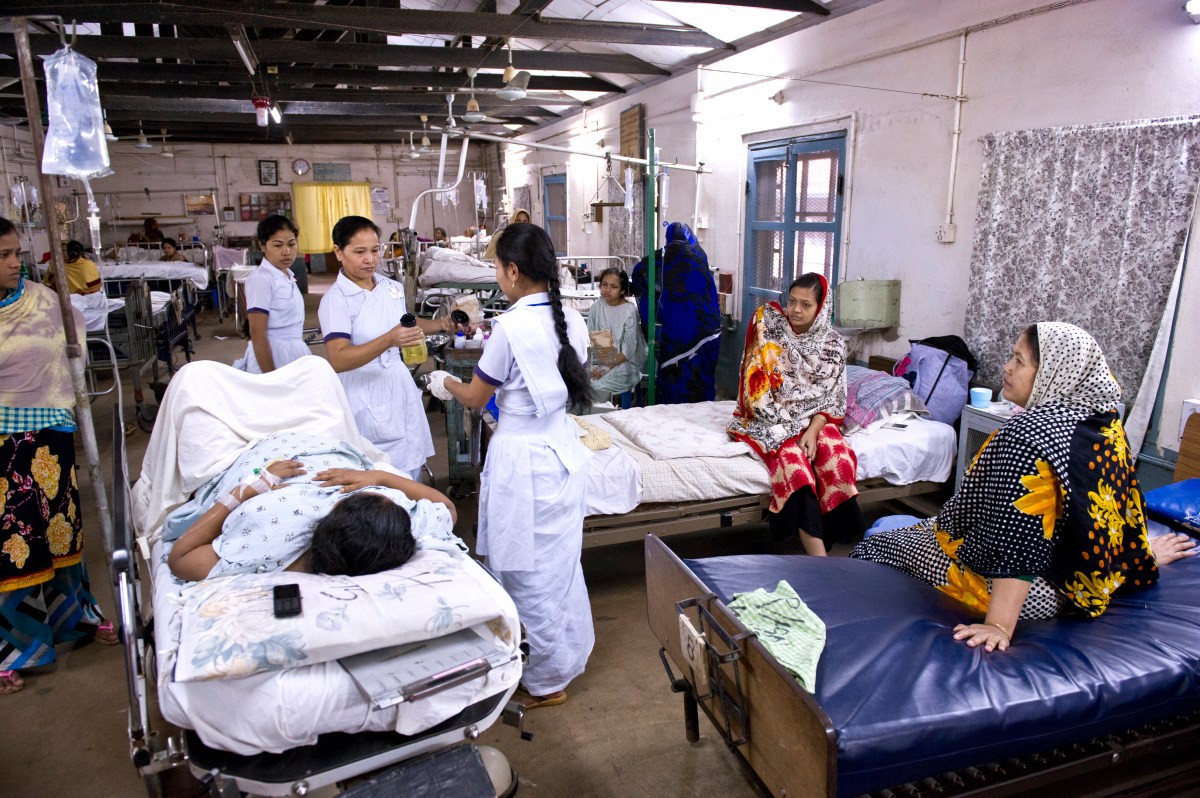
But the No. 1 cause of recent injuries is vehicle accidents, he said. The Rohingya aren’t used to motor vehicles, and don’t know to step out of the way of aid vehicles.
“Fifty percent of all the injured now come from pedestrians hit by cars,” Kelley said. “I’m putting hundreds of nails in arms and legs.” He normally orders orthopedic hardware from the United States every 18 to 24 months, but just placed his third order since August.

“The general trend of the last two to three months has been one of abatement and diminution of the problem,” he said. “But we think it’s short-lived.”
That’s because the rainy season is just around the corner, and the Rohingya are camped on hills they’ve stripped bare of trees in an effort to fuel cooking fires.
“It’s dry now, so you can cut stairs in [the mud hills], and drive bamboo sticks in to make a pup tent,” Kelley said. “Give it a good night of rain and it’ll be a disaster.”
Down in the camps, the emergency field hospitals are dealing with disease outbreak. The Rohingya have been denied immunizations since 1982, and “measles and diphtheria are both smoldering right now,” Kelley said. “The next great fear is cholera.”
Memorial Christian can’t get its new hospital open soon enough. It will likely be ready next January. With 125,000 square feet, an ICU, operating rooms, and an obstetrics wing, it will be “one of the largest structures in southeast Bangladesh,” H. G. said. It’ll double the number of beds and triple the number of outpatients able to be seen daily (from about 100 to 300).
Kelley is currently writing letters to health care organizations in the US, asking for sutures, IV fluids, cardiac monitors, anesthesia machines, and a couple used operating room tables. H. G. is looking for medical staff: mainly primary care physicians (including pediatrics, family medicine, and internal medicine), OB/GYN doctors, and a slew of nurses.
The Rohingya aren’t going away. With Myanmar actively burning their homes and arming the border, and Bangladesh working hard to keep them confined in the camps, they’re in limbo—right next to Memorial Christian.
“Our team is weary and beleaguered, but also deeply impressed at our sovereign God and his plans, which are unstoppable,” Kelley said. From Judson and Carey, to the first ABWE missionaries, to now, “it’s God’s providence in bringing the nations to the foot of the cross in our generation.”
“In Genesis 50:20, Joseph says to his brothers, ‘You meant this for evil, but God meant this for good,’” H. G. said. “God put this hospital there at this time, so that people could not only be healed physically but also spiritually.”

